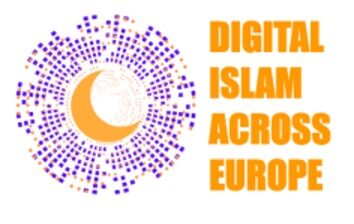European Muslim communities (and indeed all communities) have been transformed by the digital revolution and new processes of knowledge creation, acquisition and dissemination that erode traditional structures of authority. While many Muslims remain marginalised from European hierarchies of knowledge, digital platforms provide novel ways to create and share information about themselves and their roles in plural European society. These platforms have intensified diasporic ties, as well as connections among diverse European Muslim communities. This, in turn, has widened inter-generational differences within Muslim populations throughout Europe. For example, ‘digital native’ European Muslims are more likely than older generations to value YouTube as a source of Islamic knowledge over the local mosque or other traditional sites of religious learning.
Yet, our understanding of the creation, use, and influence of Online Islamic Environments (OIEs) in European Contexts is limited. This project investigates the characteristics of contemporary OIEs, and their consequences for the social and religious practices of different Muslim populations within and across distinct European contexts. Focusing on the interactions between producers and users of OIEs, it examines how, when and why individuals and groups seek advice on the internet about a range of social and religious issues, as well as how online and offline experiences and practices shape one another across diverse platforms and contexts.
The project entails in-depth research in five European countries: Lithuania, Poland, Spain, Sweden and the United Kingdom. At its core, the project will examine how diverse Muslim populations engage with the online ecosystem, seeking and providing formal or informal advice on issues related to Islam. It will show how these interactions shape, and are shaped, by the success of specific online producers. It will also analyse how OIE usage influences individual behaviours and beliefs in different national settings. The project combines qualitative and quantitative methods including: semi-structured interviews of producers and users of OIEs, a ‘netnographic’ tracing of online habits, and a transnational survey of producers of online Islamic guidance and their followers. The research will provide concise explanations of the dynamics and social implications of OIEs to specific stakeholders, including Muslim organisations and networks, policy makers, and third sector organisations.
